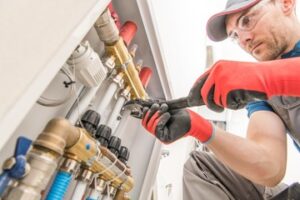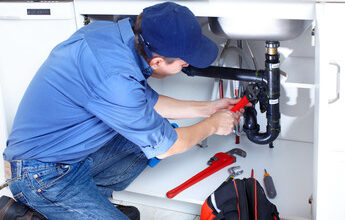Plumbers Bradenton play a crucial role in maintaining modern infrastructure. Their work ensures clean water supply and proper waste disposal. A well-functioning plumbing system is essential for daily comfort and hygiene. Skilled plumbers handle both routine maintenance and complex repairs.
Modern plumbing systems have evolved significantly over the years. Advanced materials and techniques have improved efficiency and durability. However, new challenges have emerged alongside these advancements. Plumbers now require a broader range of expertise to address them.
One major challenge in plumbing is aging infrastructure. Older pipes and fixtures often deteriorate over time. Corrosion, leaks, and blockages become more common with age. Replacing outdated systems requires careful planning and execution.
Water pressure issues are another common problem. Low pressure affects daily tasks like showering and washing dishes. High pressure strains pipes and increases the risk of leaks. Plumbers adjust pressure levels to prevent long-term damage.
Drain blockages are a frequent concern in both residential and commercial settings. Hair, grease, and debris build up over time. Blocked drains cause slow drainage and unpleasant odors. Plumbers use specialized tools to clear these obstructions.
Leak detection has become more advanced with modern technology. Acoustic sensors and thermal imaging help locate hidden leaks. Early detection prevents structural damage and mold growth. Prompt repairs save money and reduce water waste.
Installing new plumbing systems requires precise planning. Plumbers assess water flow patterns and pressure requirements. Proper pipe placement ensures even distribution of water. Accurate installation prevents future leaks and pressure imbalances.
Water heater maintenance is a key aspect of plumbing work. Sediment buildup reduces heating efficiency and increases energy costs. Plumbers flush out tanks and replace worn-out parts. Regular maintenance extends the lifespan of water heaters.
Plumbing also involves handling complex wastewater systems. Improper waste disposal leads to contamination and health risks. Plumbers ensure that sewage systems function properly. Backflow prevention systems protect water quality.
Frozen pipes present a seasonal challenge for plumbers. Water expands when frozen, causing pipes to burst. Insulating pipes reduces the risk of freezing. Thawing techniques prevent further damage without stressing the system.
Plumbing inspections help identify potential problems early. Plumbers use cameras to inspect pipe interiors. This allows for targeted repairs without invasive measures. Regular inspections maintain system efficiency.
Fixture installation is another essential plumbing task. Faucets, sinks, and toilets must be installed correctly to prevent leaks. Improper installation causes water waste and structural damage. Professional plumbers ensure secure and leak-free installations.
Eco-friendly plumbing solutions have gained popularity. Low-flow fixtures reduce water consumption without compromising performance. Efficient water heaters lower energy use and operating costs. Plumbers help homeowners adopt sustainable solutions.
Gas line installation and repair also fall under the scope of plumbing. Leaking gas lines pose serious health and safety risks. Plumbers test and repair gas lines to ensure safety. Proper ventilation prevents dangerous gas buildup.
Plumbing work extends to outdoor systems as well. Sprinkler systems and outdoor faucets require regular maintenance. Leaks and blockages affect water distribution. Professional adjustments improve performance and water efficiency.
Complex plumbing networks in high-rise buildings require advanced knowledge. Water pressure changes with elevation, requiring pressure regulators. Plumbers design systems that maintain consistent flow at all levels. Careful planning prevents pressure drops and surges.
Emergency plumbing services address urgent issues like burst pipes and sewage backups. Quick response minimizes damage and restoration costs. Plumbers carry specialized tools for rapid repairs. Emergency services prevent further structural damage.
Commercial plumbing involves larger-scale systems and higher water demands. Restaurants and hotels rely on high-performance plumbing networks. Grease traps, industrial-grade pipes, and high-capacity fixtures are essential. Commercial plumbers maintain these complex systems.
Water quality testing is an important aspect of modern plumbing. Contaminants affect taste, smell, and safety. Plumbers install filtration systems to improve water quality. Safe drinking water enhances health and comfort.
Plumbing codes and regulations have become more stringent. Compliance ensures safe and efficient systems. Plumbers stay updated on local codes and industry standards. Following regulations prevents legal and safety issues.
Plumbing technology continues to evolve rapidly. Smart home systems now integrate with plumbing networks. Leak detection sensors and automated shutoff valves prevent damage. Plumbers install and program these advanced systems.
Cross-contamination risks have increased with complex plumbing networks. Backflow prevention devices protect against contaminated water flow. Plumbers install and maintain these systems to ensure water purity. Proper separation of potable and wastewater lines reduces health risks.
Water conservation has become a priority in modern plumbing. Greywater recycling systems reuse wastewater for non-drinking purposes. Rainwater collection systems reduce dependence on municipal supplies. Plumbers design and install these sustainable systems.
Plumbing work also includes pipe relining and trenchless repair methods. These techniques minimize disruption to property. Flexible liners reinforce existing pipes from within. Trenchless repairs reduce costs and environmental impact.
Septic system maintenance falls within the scope of plumbing services. Improper septic function causes backups and health hazards. Plumbers pump and clean septic tanks regularly. Proper maintenance prevents system failure and groundwater contamination.
Plumbers often work with HVAC systems as well. Condensation drains and boiler connections require secure plumbing. Improper connections cause leaks and system malfunctions. Plumbers ensure that HVAC and plumbing systems work together smoothly.
Professional plumbers handle water softening system installation. Hard water causes mineral buildup in pipes and fixtures. Softening systems remove excess minerals and improve water flow. Proper maintenance ensures long-term system efficiency.
Plumbing repair costs vary depending on the severity of the issue. Minor leak repairs cost less than pipe replacement. Emergency repairs and system overhauls involve higher costs. Investing in professional repairs prevents long-term expenses.
DIY plumbing repairs often lead to more extensive damage. Incorrectly installed pipes and fixtures cause leaks and pressure issues. Professional plumbers have the tools and knowledge for effective repairs. Expert installation ensures system longevity.
Insurance coverage for plumbing repairs depends on the cause of damage. Burst pipes from freezing or accidental damage are often covered. Poor maintenance and gradual leaks may not be included. Understanding coverage helps homeowners plan for repairs.
Plumbing work requires ongoing training and certification. New materials and technologies require updated knowledge. Certified plumbers stay current with industry trends. Professional training ensures high-quality service.
Advanced leak detection technology has improved repair accuracy. Ultrasonic sensors and infrared cameras detect hidden leaks. Non-invasive detection reduces repair time and property damage. Early leak detection prevents structural issues.
Plumbers also handle backflow testing and prevention. Backflow contaminates drinking water with sewage and chemicals. Testing ensures that prevention devices function properly. Certified plumbers perform regular backflow inspections.
Proper venting is essential for plumbing system function. Vent pipes prevent pressure buildup and sewer gas intrusion. Improper venting causes slow drainage and foul odors. Plumbers design and install effective venting systems.
Plumbing work improves overall property value. Modern, efficient systems appeal to buyers and tenants. Documenting professional repairs and upgrades increases marketability. Reliable plumbing enhances long-term property performance.
Water-efficient plumbing fixtures reduce utility costs. Low-flow toilets and showerheads decrease water use. Efficient water heaters lower energy consumption. Upgrading to efficient fixtures provides long-term savings.
Plumbing work extends to industrial facilities as well. Large-scale systems require heavy-duty pipes and fittings. Industrial plumbing systems handle high pressure and temperature changes. Proper maintenance prevents costly downtime and repairs.
Plumbers also address mold and mildew issues from water leaks. Moist environments promote mold growth in walls and ceilings. Repairing leaks and improving ventilation reduces mold risk. Clean, dry interiors promote healthier living spaces.
Professional plumbers provide long-term peace of mind. Expert repairs and maintenance prevent unexpected issues. Efficient systems reduce utility costs and improve comfort. Skilled plumbers ensure reliable and lasting plumbing performance.


